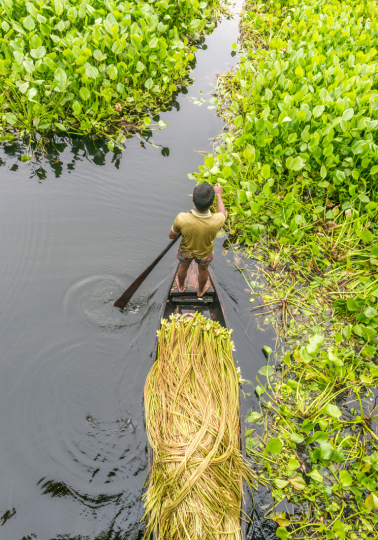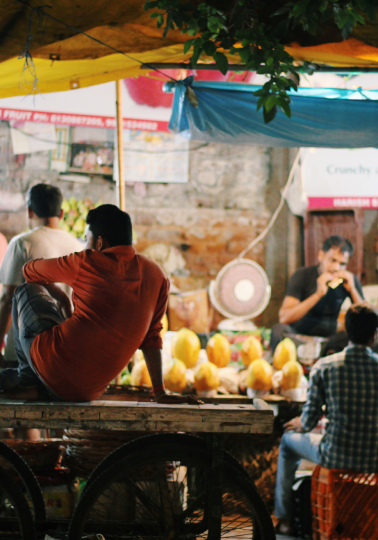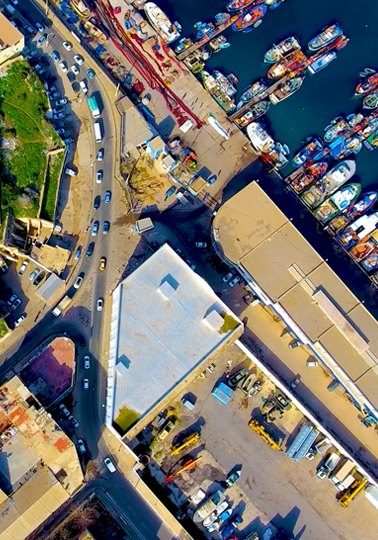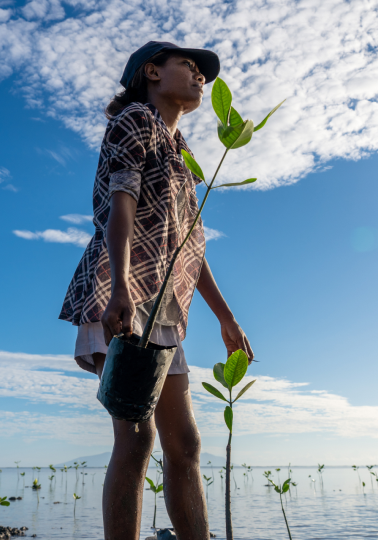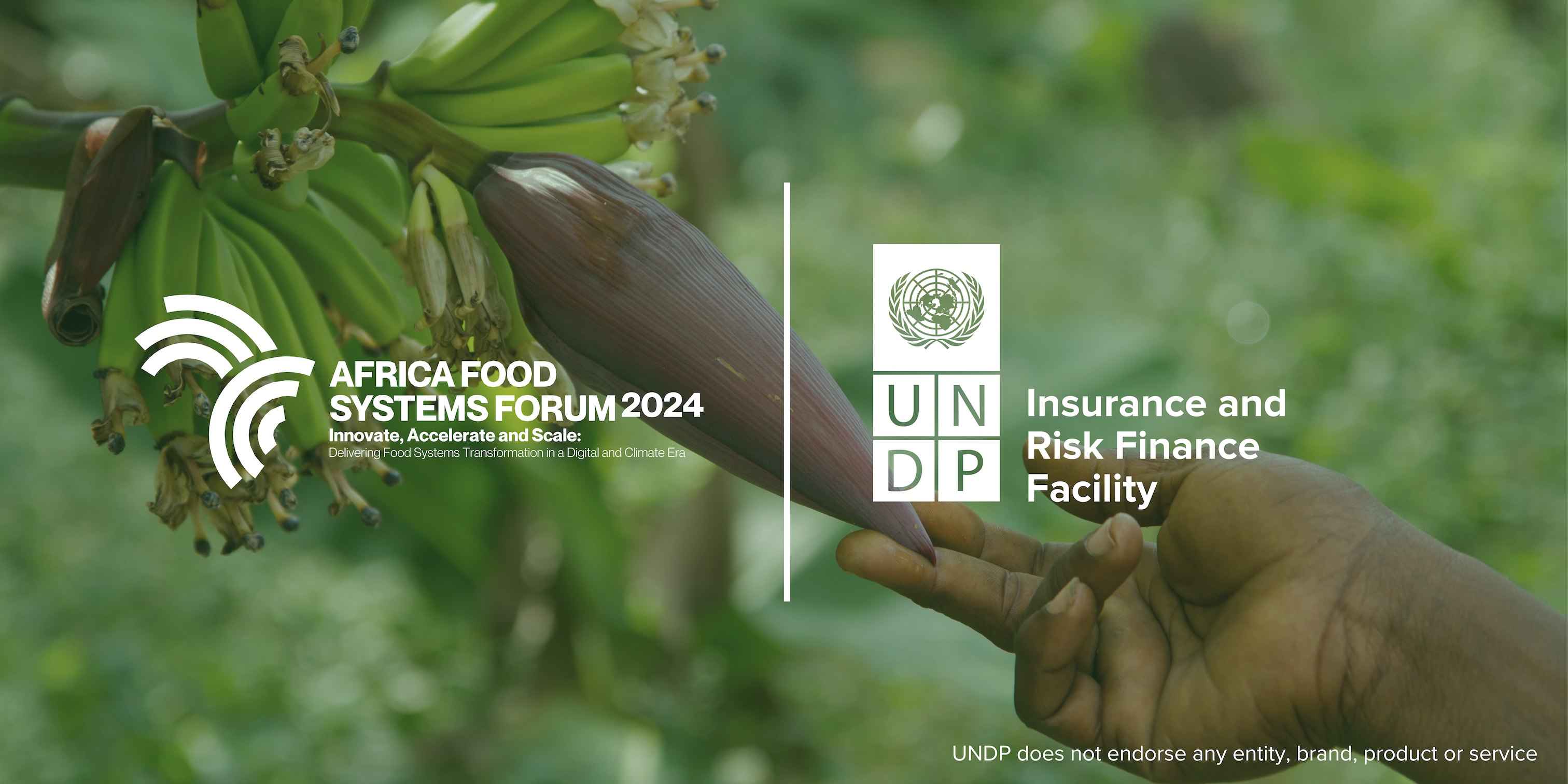UNDP at the Africa Food Systems Summit 2024
Join UNDP at the African Food Systems Forum 2024 Summit, taking place in Kigali, Rwanda from 2-6 September
Building resilient African food systems in a digital and climate era
Food security and hunger are persistent challenges in Africa, where most countries rely heavily on food imports from outside the region to meet food security needs. Food aid has been steadily increasing at approximately 10% each year.
The 2014 Malabo Declaration saw African leaders declare a commitment to investing in agricultural production and productivity, enhanced resilience to climate-related shocks and no hunger by 2025. Such efforts have proven highly vulnerable to the intensifying impacts of climate change. From drought and flooding to heat stress and desertification, recurring disasters have had unprecedented impacts on livelihoods and agricultural productivity. have reduced farmers’ income and harvests outputs, sometimes obliterating them completely.
Climate adaptation initiatives are also vulnerable to risk. The rise of climate-related extreme weather and disasters are slowing down adoption, investment and access to climate-smart technologies. In Africa, farmers are often the most exposed. In 2022, over 20 million people and 10 million children faced severe food shortages in Africa due to crop failure and four consecutive dry seasons. In the same year, recurrent drought and low response capacity in East Africa led to losses of close to 2 million livestock due to. Projections by the United Nations Economic Commission for Africa point to the region’s annual food imports increasing significantly; by a factor of seven, from $15 billion in 2018 to $110 billion by 2025.
De-risking instruments needed to attract financing for agricultural and climate adaptation efforts.
These de-risking instruments, including insurance, play a critical role in ensuring the sustainable transition of food systems in Africa, boosting the financial resilience of small-scale producers and the region’s significant contribution to the resilience of global food value chains. However, the insurance penetration level is less than 3% across Africa, with agricultural insurance related products making an insignificant contribution. Less than 5 countries in Africa have well-functioning government-led national agricultural insurance schemes.
UNDP’s Insurance and Risk Finance facility is pioneering transformative efforts to build the financial resilience of food systems in Africa, and globally.
To support the development of well-functioning agricultural insurance markets in developing countries, UNDP’s work is guided by three foundational building blocks:
- Enabling Environment. Defining the role of agricultural insurance in government and market dynamics.
- Innovation Models. Designing, developing and testing insurance solutions for the agriculture sector.
- Market Foundations. Facilitating in-country technical support services for insurers, value chain actors and financial institutions.
UNDP’s Financial Resilience in Agriculture Initiative is bolstering smallholder farmers’ resilience and adaptation to climate change through the development and implementation of innovative agricultural insurance programs. Read more about how FRA is developing well-functioning local insurance markets, and explore the FRA Community of Practice launched in April 2024.
Through the Tripartite Agreement, UNDP is also working with governments and insurance industry to developed tailored agriculture-related risk finance solutions in Tanzania, Uganda, Ethiopia, Mexico, Ecuador, Uzbekistan, and Colombia.
UNDP and the 2024 Africa Food Systems Forum share a common objective to build the financial resilience of food systems by mobilizing practical action from policy makers, private sector, academia, youth, women and farmers. Join us at the AFS Forum, as we spotlight innovative de-risking instruments, farmer resilient practices, policy reforms development and concrete country solutions.
UNDP invites Africa food system actors to contribute feedback to a consultation paper on building small-holder farmers’ resilience and adaptation to climate change, and forge partnerships to accelerate the development of de-risking instruments that unlock a better future for farmers and agricultural systems.
Engage with UNDP at the following sessions:
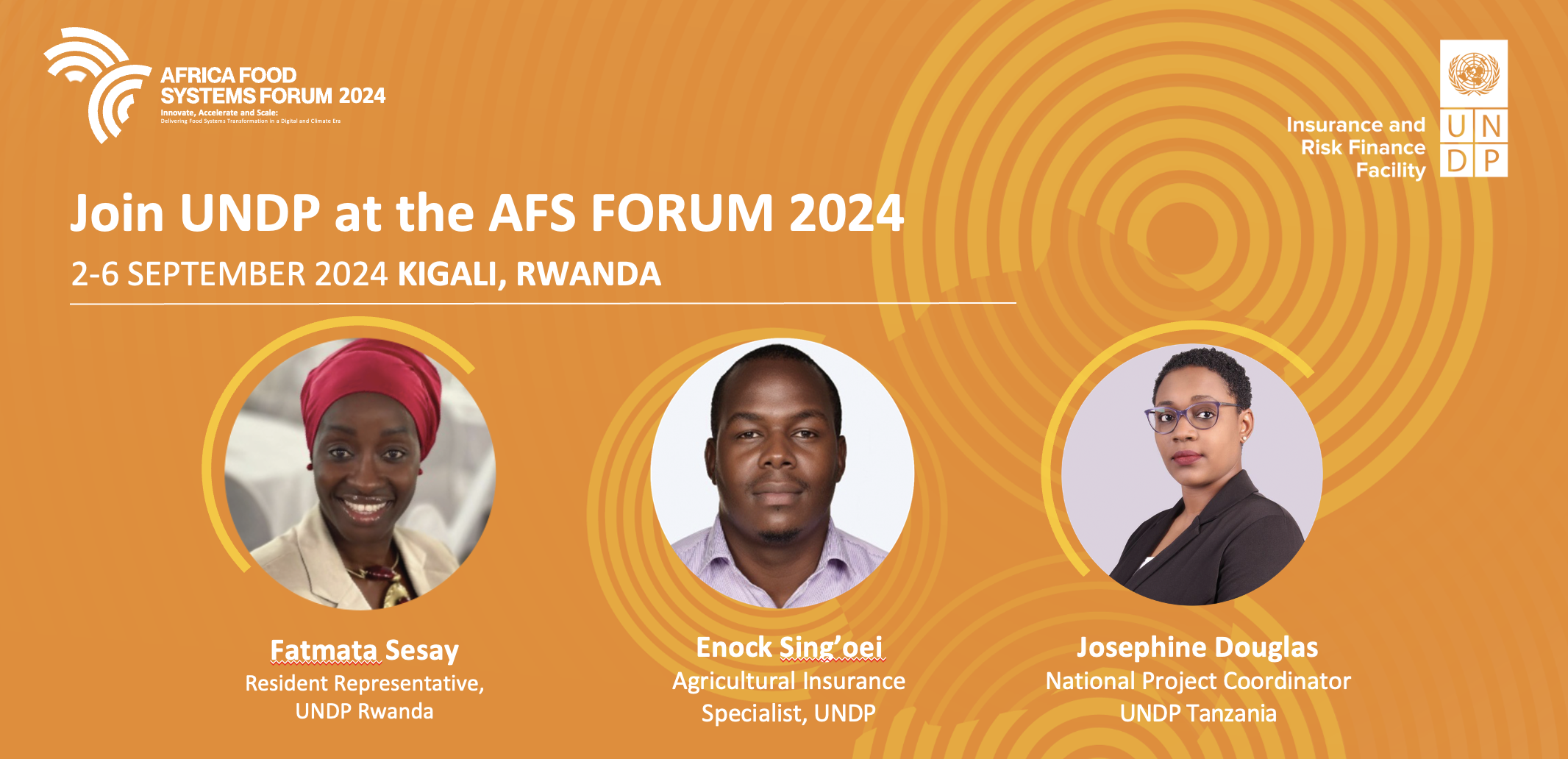
Parliamentary Network Forum: Championing Food Systems through MPs in Africa
3rd September 11:30 – 13:30 GMT+2 ︱UNDP Speaker: Dr. Fatmata Sesay, Resident Representative, UNDP Rwanda
Delve into the critical role of parliaments in advancing food systems and holding themselves accountable to the Malabo declaration and Post Malabo. An Africa Food System Parliamentarian Network was established to champion food system improvements in members’ respective countries, moving the continent toward greater food security. National chapters are pursuing evidence-based solutions to promote and enhance nutrition on the continent while representing the people voices. MPs across Africa will share valuable lessons on what has worked in advancing business potential and food system transformation and scalability.
Making AfCFTA work: Innovations and partnership to increase intra Africa trade in Africa food systems
4th September 14:00 – 16:00 GMT+2 ︱UNDP Speaker: Enock Sing'oei, Agricultural Insurance Specialist, UNDP Insurance and Risk Finance Facility.
Africa will need to feed 2.2 billion people by 2050, with global food demand increasing by 50%. To meet this extra demand requires increased volumes of regional trade. The AfCFTA Guided Trade Initiative (GTI) isanchored in the food baskets and trade corridors approach but requires critical partnership and support to succeed. This session will share views on how Africa can innovate, accelerate and scale initiatives to increase intra-Africa trade and contribute towards global food demand.
Agri-Innovate & Digitalization: Investments to Scale up Food Systems Transformation
5th September 11:15 – 13:00 GMT+2 ︱UNDP Speaker: Josephine Douglas, National Project Coordinator Tanzania, UNDP Insurance and Risk Finance Facility.
The session will identify key actions to enable investment and public-private sector collaboration to deliver digital technological innovations that drive scale and food system transformation. It will also highlight successful investment models, opportunities for technical assistance and business development, as well as use cases in agriculture to drive agricultural digitalization.
Explore the full Forum agenda here: https://agrf.org

